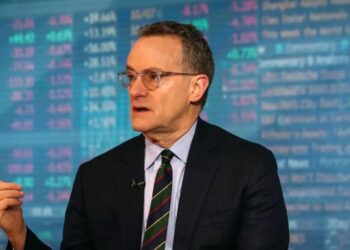Today, in a series of three review papers published in The Lancet, 43 public health experts from around the world issued a call for government policies aimed at reducing the consumption of ultraprocessed foods which, they write, are driving global increases in obesity and chronic diseases.
The papers compile years of evidence on the foods’ links to poor health and growing reach around the world — and the policies that could turn the tide, the experts say. Without greater regulation of the companies that manufacture and market the foods, they add, people’s health will only worsen.
“Big food is taking over,” said Barry Popkin, a lead author of one of the papers and a professor of nutrition at the Gillings School of Global Public Health at the University of North Carolina.
Ultraprocessed foods make up more than half of the calories consumed daily in the United States and in Britain. The foods are less widespread in lower and middle income countries, but studies suggest that they are increasing. Globally, ultraprocessed food sales grew to $1.9 trillion in 2023, from $1.5 trillion in 2009, and just eight companies control an estimated 42 percent of the market, according to The Lancet authors.
The rise of ultraprocessed foods has had serious health consequences, said Carlos Monteiro, a nutritional epidemiologist and emeritus professor at the University of São Paulo in Brazil. Research on the foods, generally described as those made with ingredients you wouldn’t find in a home kitchen, has exploded since Dr. Monteiro and his colleagues published a definition for the category in 2009, proposing at the time that they were an overlooked cause of chronic disease.
The new series was funded by Bloomberg Philanthropies, the charitable organization of Michael R. Bloomberg, a former New York City mayor, that promotes policies to improve global public health. The organization did not play a role in the research or writing of the papers, according to the journal.
In one of the papers, led by Dr. Monteiro, the authors identified 104 studies linking ultraprocessed foods to health conditions, including Type 2 diabetes, obesity, heart disease, kidney disease and Crohn’s disease.
“There are massive amounts of data, and it shows over and over again — this stuff harms people’s bodies,” said Laura Schmidt, a professor of health policy at the University of California, San Francisco, who was not involved with the new reports.
The authors suggested that governments adopt policies, like taxes on sugary drinks and warning labels for certain ultraprocessed foods, especially those high in sugar, fat or salt. They also recommended restrictions on marketing ultraprocessed foods to children and reducing their use in school meals. The proposed policies are similar to those that have worked to reduce smoking rates, Dr. Schmidt said.
Food companies have pushed back against a number of proposed regulations. The policy recommendations in The Lancet series “would risk limiting access to nutrient dense processed foods and reducing the availability of safe, affordable, shelf-stable options globally,” wrote Rocco Renaldi, Secretary-General of the International Food and Beverage Alliance, which represents food and drink manufacturers, in a statement to The New York Times.
But regulations are beginning to work in some countries that have implemented them.
In 2016, for example, Chile began requiring food manufacturers to put warning labels on foods high in saturated fats, added sugars, sodium or calories. By the next year, the number of products that needed one of those warnings had dropped to 44 percent from 51 percent, suggesting that companies had tweaked their recipes. Other countries have taxed sugary drinks, and research suggests that these policies have decreased sales of the products.
In many countries, including the United States, ultraprocessed foods tend to be cheaper and more readily available, so we also need policies that make healthier alternatives more affordable and accessible, Dr. Popkin said. These could include increasing funding for food benefits, like those provided through SNAP, and earmarking more to be spent on fruits and vegetables. Policies could also limit ultraprocessed foods in school meals and fund the purchase of more fresh foods, he said.
Robert F. Kennedy Jr., the nation’s health secretary, and his “Make America Healthy Again” movement have drawn attention to the links between poor health and ultraprocessed foods. But so far, Mr. Kennedy has focused on reducing the use of artificial colors and certain food additives, efforts that Dr. Popkin said would do little to improve the healthfulness of the food supply. And this year, the Trump administration cut SNAP benefits and programs that funded schools and food banks to purchase foods from local farms.
Dr. David Ludwig, a professor of pediatrics at Harvard Medical School, said the definition of ultraprocessed foods was imprecise and that we needed more debate about whether the category is the right target for policies aimed at improving people’s diets.
The Lancet authors acknowledge such critiques in the new papers. But, they argue, the existing evidence on ultraprocessed foods is enough to warrant action now.
Dr. Schmidt agreed, noting that the U.S. food supply is so dominated by unhealthy ultraprocessed foods that they are nearly impossible to avoid.
“We should be looking at that long and hard and thinking about if that’s really the diet we want to have,” she said. “It isn’t inevitable.”
Alice Callahan is a Times reporter covering nutrition and health. She has a Ph.D. in nutrition from the University of California, Davis.
The post Scientists Call for Global Shift Away From Ultraprocessed Foods appeared first on New York Times.




